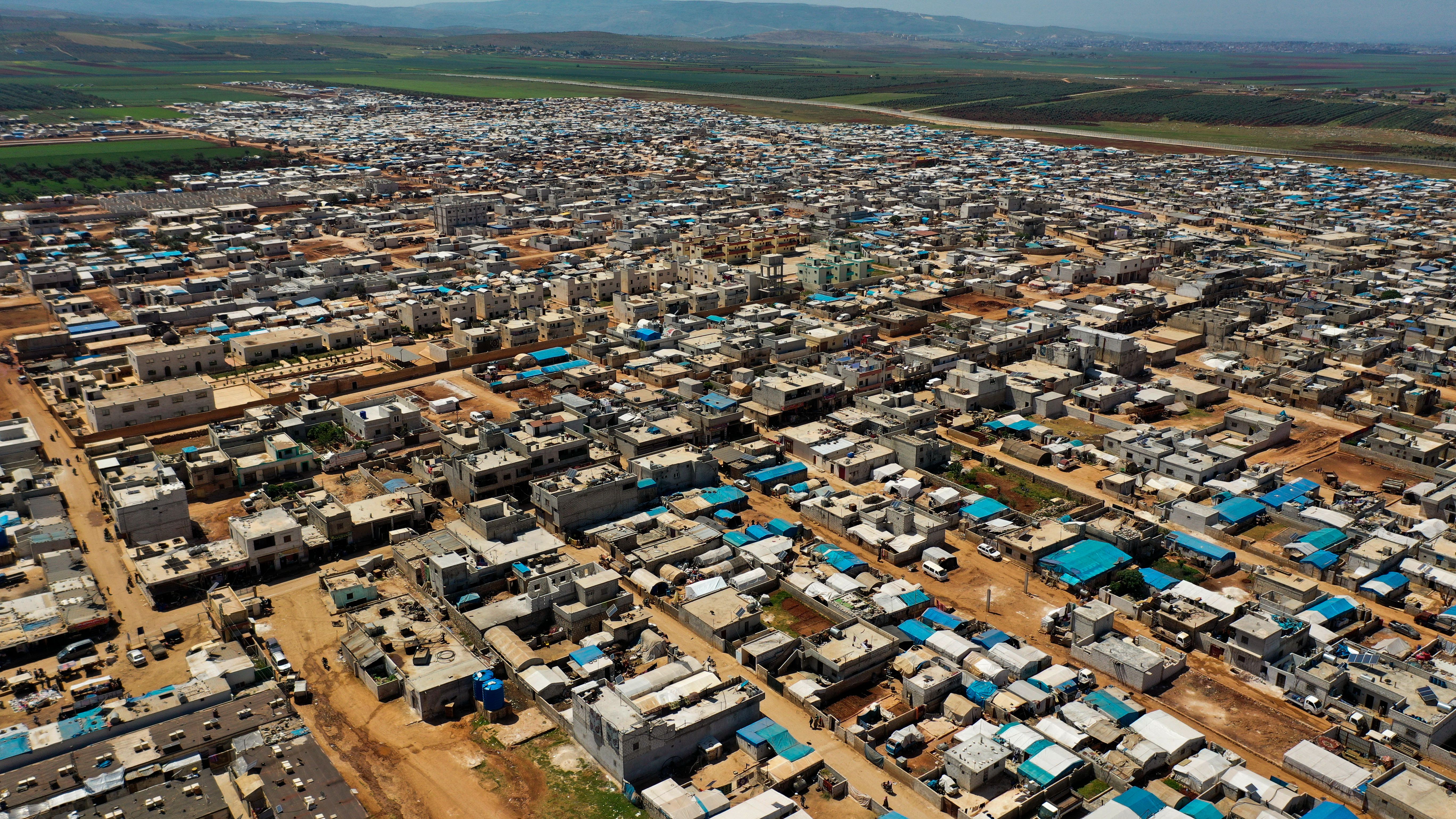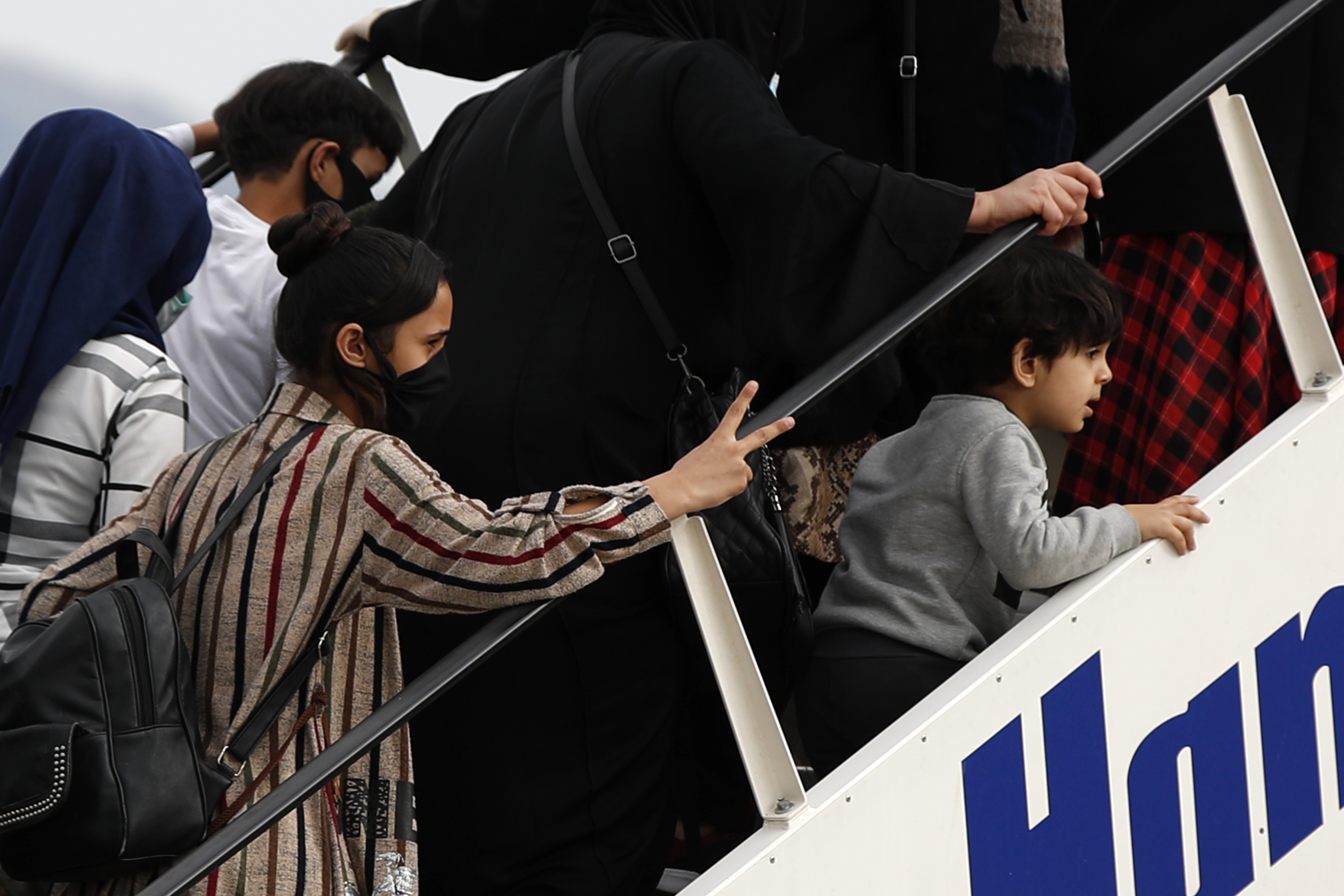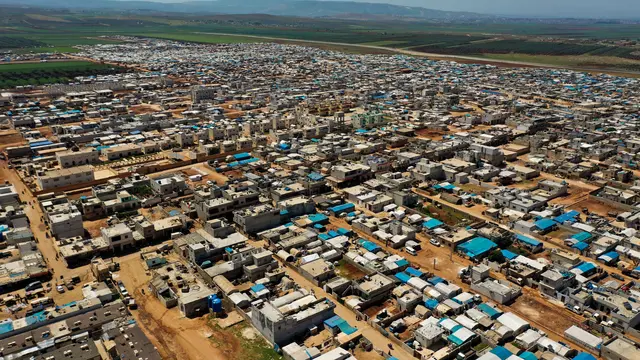
A large refugee camp on the Syrian side of the border with Turkey, near the town of Atma, in Idlib province, Syria, April 19, 2020. /AP
More than one percent of the world's population is currently displaced, and more and more refugees are unable to ever return home, the UN's refugee agency (UNHCR) warned in a new report published on Thursday.
In total, one out of every 97 people on the planet has been forced to flee their home, according to the
UNHCR's annual "Global Trends" report
.
This amounted to an unprecedented 79.5 million people by the end of 2019, the agency said. In 2018, the UNHCR had counted 70.8 million forcibly displaced people worldwide.
The number has spiked over the past decade, almost doubling from 41 million in 2010.
At the same time, only a fraction of refugees – around 385,000 per year – have been able to return home in the last 10 years, compared to an average 1.5 million per year in the 1990s.
"We are witnessing a changed reality in that forced displacement nowadays is not only vastly more widespread but is simply no longer a short-term and temporary phenomenon," UN High Commissioner for Refugees Filippo Grandi said in a statement, calling for "a fundamentally new and more accepting attitude" to refugees and for greater international efforts to prevent and solve conflicts that lead people to flee in the first place.
New hotspot: Venezuela
Out of the total number of displaced persons in 2019, 45.7 million were displaced in their own country, 29.6 million fled abroad, and 4.2 million were asylum seekers. Between 30 and 34 million were children.

Venezuelans wait to pass immigration control at the Ecuadorian border in Tumbes, Peru, June 14, 2019. /AP
As in previous years, the biggest number of refugees who fled abroad came from Syria, followed by Afghanistan, South Sudan and Myanmar, but with the new addition of Venezuela.
The crisis in the Latin American country led to 3.6 million Venezuelans being displaced abroad, many of them landing in neighboring Colombia, which joined Turkey, Germany, Pakistan and Uganda as top host countries.
Other major "hotspots" that caused people to flee included the Democratic Republic of the Congo, Burkina Faso and Yemen, the UNHCR report said.
While stories about migrants trying to reach Europe or the U.S. have continued to dominate headlines, about 85 percent of all displaced persons in late 2019 were living in developing countries, and 80 percent found themselves in places that suffered from severe food insecurity and malnutrition.
Worryingly, once displaced there are few options for people to rebuild their lives.
As wars have raged on, fewer people have been able to return home, and other countries have been increasingly reluctant to accept refugees or have struggled to integrate displaced persons, the report said. This explained the steady hike in global numbers over the past 10 years.
Looking ahead
Sadly, "solutions for refugees are in decline," the UNHCR noted. The preferred solution in most cases, voluntary repatriation, has been made difficult as conflicts in places like Syria and Afghanistan drag on endlessly. Between 2010 and 2019, only 3.9 million refugees were able to return home, compared to almost 10 million in the preceding decade.

Migrants board a plane bound for Britain in Athens, Greece, as part of a migrant reunification plan between the two countries, May 11, 2020. /AP
Meanwhile, resettlements to a third country – a tool used especially with vulnerable persons, such as children, women or victims of torture – take place far less often than would be needed: for every 20 vulnerable refugees in need, there is only one resettlement spot available, the report noted. In 2019, only half a percent of all refugees were resettled.
A third option is local integration but surveys in Europe and in Africa have shown refugees are far more likely to be unemployed or to be paid lower wages than the local population.
Over the coming years, climate emergencies and natural disasters will almost certainly create new flows of refugees, and the COVID-19 epidemic was a reminder of how unpredictable events could further exacerbate an already delicate situation.
"The world has clearly shifted from a decade of solutions to a decade of new and protracted displacement," the UNHCR noted, calling on states to play their part and come up with new options.
 简体中文
简体中文






